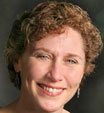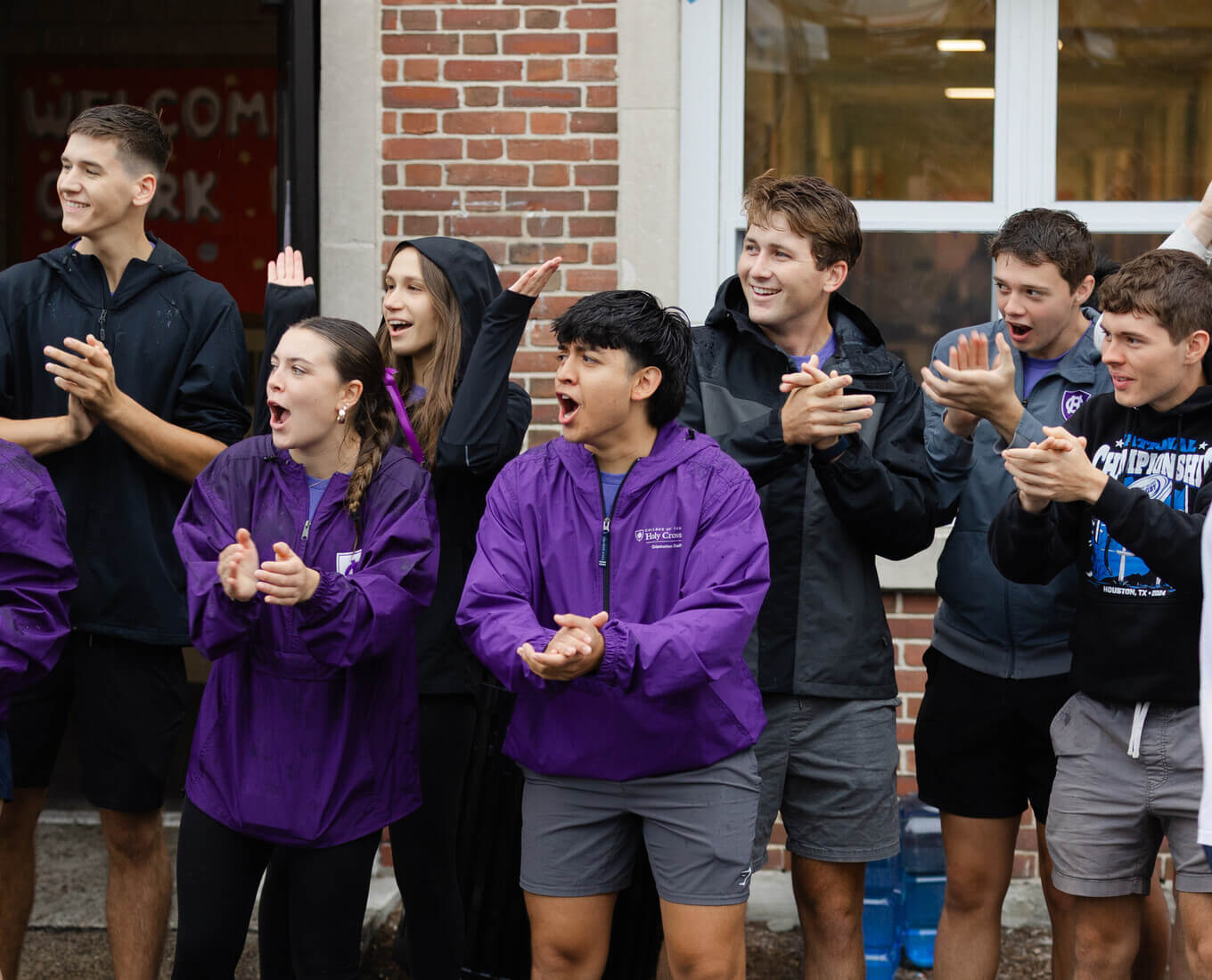 Judy Freedman Fask’s introduction to her life’s work came right after high school when she was working as a young teacher’s aide in a Worcester classroom.
Judy Freedman Fask’s introduction to her life’s work came right after high school when she was working as a young teacher’s aide in a Worcester classroom.
“It just happened that the kids were deaf,” she says. “I loved the language, I loved the kids, I loved the interaction. So I started taking sign language classes.”
Fask’s passion and enthusiasm for her work is as infectious as her ever-present smile — which is her trademark sign-off on e-mails.
She charted her own course in deaf studies, combining cross-cultural education and communication disorders at the University of Massachusetts at Amherst. She later earned a master’s degree in education for the deaf at Smith College, and another master’s in vocational counseling from Springfield College. She also holds a National Certification from the Registry of Interpreters for the Deaf for both Transliteration and Interpretation, and has used those skills to interpret in public events for the likes of Barbara Bush and Hillary Clinton.
She met with Rev. Joe Bruce, S.J., ’73, who had been informally offering courses about deaf culture to students at the College. In the 1990’s, Fask advocated for and developed a comprehensive American Sign Language/deaf studies program at Holy Cross. As director of the program, housed under the College’s Center of Interdisciplinary and Special Studies, she conceived an innovative approach that incorporates more than 40 community-based partnerships, giving students hands-on experience and practical application of the curriculum. Students who complete the program earn a certificate in deaf studies, satisfy their language requirement, and find it has such an impact on them that they often incorporate the material in their careers. More on that later.
In recognition of these accomplishments, Fask was awarded one of the YWCA’s Katharine F. Erskine Awards this spring during the 14th annual Tribute to Women in Worcester. She “has educated hearing people about the deaf community, their language and culture and has empowered deaf people to become educators and leaders,” the YWCA organizers said in the announcement. “Under her direction, local programs and public offerings have become more fully accessible for people who are deaf or hard of hearing.”
The community collaboration makes the deaf studies program at Holy Cross one of the most distinctive — and respected — in the nation.
“If you’re trying to learn a language you have to use it and not just learn it in the confines of a classroom,” she says. “It’s also more than just learning the language. It’s about learning the culture, getting to know the people. When students make a one-to-one connection in the community, they’re more interested and more motivated to interact. They really want to get to know the person and by doing so learn more about the culture and community of deaf people.”
Even her classroom work has a community component.
“In my Introduction to Deaf Studies class I have a series of guest speakers who come in to offer personal perspectives from their own experiences — hearing parents who have deaf children; deaf parents who have hearing children; deaf individuals from deaf families; deaf-blind individuals; hard of hearing individuals; late deafened individuals; and individuals who have cochlear implants.
“It shows that the similarity between deaf and hearing people is more about language, culture and identity,” she stresses. “And that’s how it’s highlighted. I hope that’s the perspective students gain — to see it not as a disability, but as a connection for people through a distinct language and a culture.”
Getting students to “step outside their box and their comfort zone” by immersing them in a deaf community with its own established culture makes them apprehensive at first, says Fask, but before long they realize its significance.
“One of my students, Jessica Acox ’07, attended an open forum for deaf-blind consumers in Central Mass. She heard that there were not many social events that deaf-blind individuals could attend. It’s really hard to get out and interact if you’re deaf-blind because you need service providers, communication, access — you need someone there to assist you — to be your eyes and ears. So, Jessica decided for her class project she’d set up a social bingo for deaf and deaf-blind. With the help of the deaf seniors who meet at St. Matthew’s Church in Worcester, Jessica organized the event, thinking that only about 20 people would show up. Eighty people attended the event!”
Fask and her students reach out to hundreds of deaf individuals a year, through programs on campus and off, such as swimming and ice skating lessons with instruction in ASL; storytelling in ASL at area libraries; ASL dinner with deaf friends; learning how to knit using ASL; among others.
We suspected from her enthusiasm — and that ever-present smile — but we wanted to make sure: Is she happy with her chosen career?
“I love what I do,” she says, again citing her students. “One of the students who graduated in 1997, Theresa Amalfitano-Crean, is a certified national interpreter, has interpreted here at Holy Cross and at the Erskine Awards. When you have your own students pursuing their careers and becoming interpreters — and there were three alumni at that awards ceremony — it’s really special. I know students who are moving on and really incorporating deaf studies into their lives, which is very gratifying.
She shares another inspiring story.
“Steven Wych ’07, an economics major who received a certificate in deaf studies, did an internship at the Center for Living and Working, and did a presentation on insurance. He was required to do it in American Sign Language because he was working with deaf individuals. He wants to be a financial planner, and open his business opportunities to include deaf individuals. So the program really does impact their thinking, and extends their own communities.”
All of which makes you want to smile.
Related Information:
• American Sign Language/Deaf Studies
Tireless director of deaf studies earns community service award
Talking in Sign
Read Time
5 Minutes
